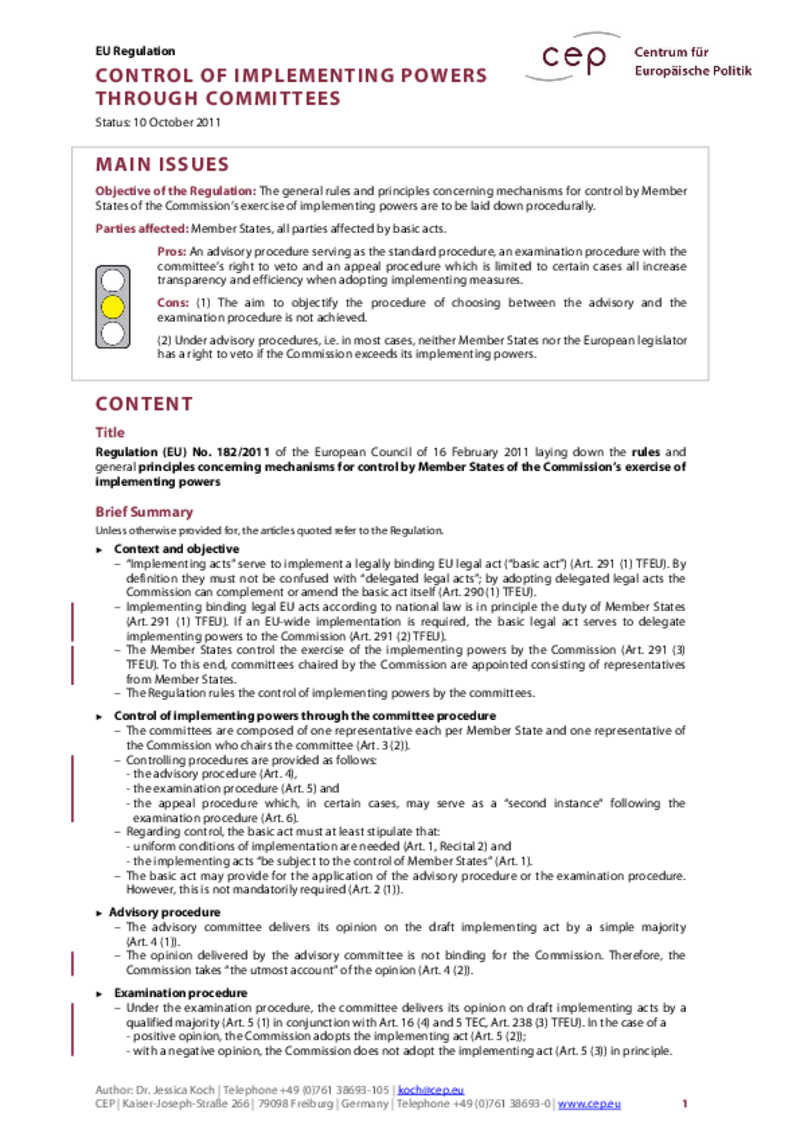
EU Treaties & Institutions
Control of Implementing Powers through Committees (Regulation)
cepPolicyBrief
Limiting committee procedures to an advisory procedure, an examination procedure and an appeal procedure creates more transparency and efficiency. Setting the advisory procedure with a non-binding delivered opinion by the committee as the standard procedure facilitates the adoption of implementing measures. The aim to objectify the procedure for choosing the advisory or examination procedure is not achieved, for the criteria do not set any real limits to the scope of selection. The appeal procedure following the examination procedure in defined cases allows for a “second instance” in politically sensitive constellations. In the advisory procedure, i.e. in most cases, neither the Member States nor the European Parliament or the Council have the right to veto if the Commission exceeds its implementing powers.
Download PDF
| Control of Implementing Powers through Committees (publ. 07.01.2014) | 210 KB | Download | |
 | |||


